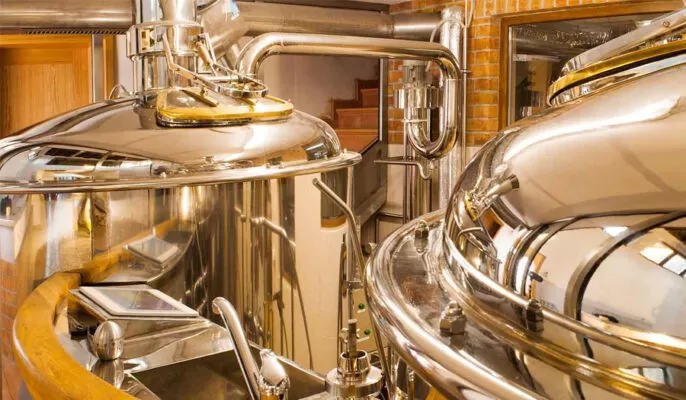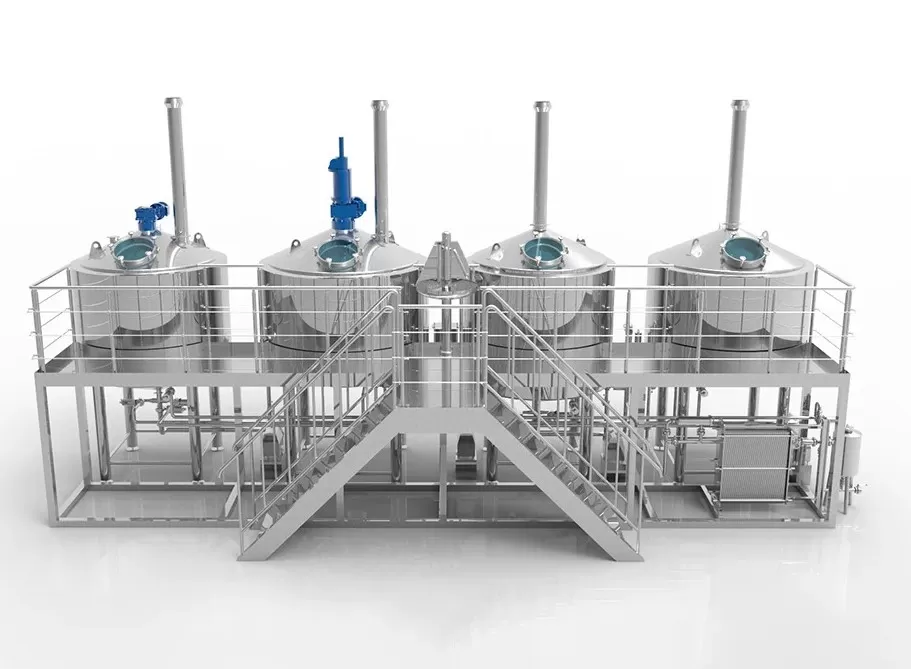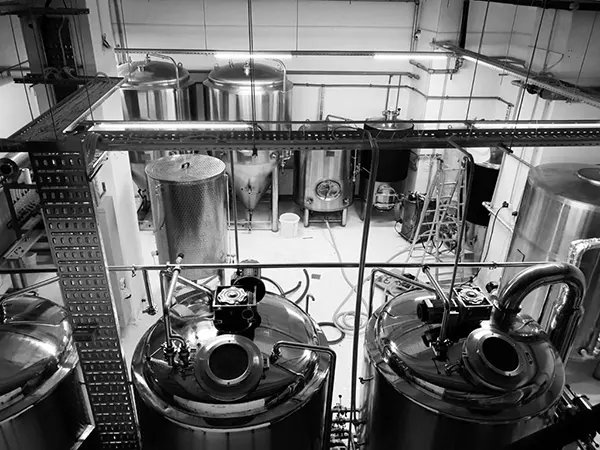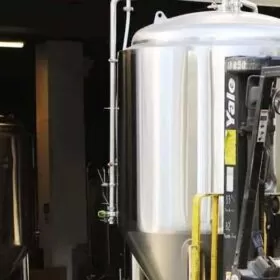In the thriving world of craft beer, the demand for brewery equipment has grown exponentially. For aspiring brewers or established brewery owners, investing in high-quality brewery equipment for sale is crucial to ensuring brewing efficiency, consistency, and meeting regulatory standards. Whether you’re starting a new brewery or expanding your existing operation, finding the right brewery equipment for sale is essential. In this article, we will explore the importance of brewery equipment, discuss the essential equipment needed for a successful brewing process, provide tips for purchasing both new and used equipment, and guide you to the best places to find brewery equipment for sale.
The Importance of Brewery Equipment
Enhancing Brewing Efficiency
Efficiency is the backbone of any successful brewery. Brewery equipment plays a significant role in streamlining the brewing process, optimizing productivity, and reducing time and resource wastage. From mashing to fermentation and packaging, each stage requires specialized equipment designed to perform specific tasks efficiently. With advanced technology and innovative designs, modern brewery equipment maximizes brewing efficiency, allowing brewers to produce larger quantities of beer without compromising quality.
Ensuring Consistency and Quality
Consistency is paramount in the brewing industry. Brewery equipment helps brewers maintain a standardized brewing process, resulting in consistent flavor profiles, aroma, and quality in every batch of beer produced. Precise temperature control, accurate measurements, and efficient mixing and agitation provided by specialized equipment ensure that each brew meets the desired specifications. By investing in reliable and well-maintained equipment, brewers can create a loyal customer base by consistently delivering exceptional beer.
Meeting Safety and Regulatory Standards
Brewing beer involves working with various ingredients, high temperatures, and pressurized systems, making safety a top priority. Brewery equipment is designed to meet stringent safety and regulatory standards, ensuring the well-being of brewery staff and consumers. From safety features integrated into brewing vessels to proper ventilation systems, equipment manufacturers prioritize safety in their designs. By investing in certified equipment, brewery owners can operate their businesses confidently while adhering to local health and safety regulations.

Essential Brewery Equipment for Sale
To set up a functional brewery, several key pieces of equipment are essential. Let’s explore the most crucial equipment needed for a successful brewing operation:
Mash Tun
The mash tun is a vessel where the mashing process takes place. It is where the malted grains are mixed with hot water to extract sugars and enzymes, forming the wort. A well-designed mash tun ensures efficient extraction and temperature control during the mashing process.
Fermenters
Fermentation is a critical step in the brewing process, where yeast converts sugars into alcohol and carbon dioxide. Fermenters, also known as fermentation vessels or tanks, provide a controlled environment for yeast to thrive and work their magic. These vessels come in various sizes and designs, allowing brewers to ferment different batches simultaneously.
Brew Kettles
Brew kettles, or brew pots, are large vessels where the brewing process begins. They are used for boiling and mixing the ingredients, such as malt, hops, and water. Brew kettles often come with built-in heating elements or burners, allowing precise temperature control during the boiling process.
Wort Chillers
After the boiling process, the wort needs to be rapidly cooled to the appropriate temperature for fermentation. Wort chillers facilitate this cooling process by efficiently transferring heat from the hot wort to a cooling medium, such as water. There are various types of wort chillers available, including immersion chillers, plate chillers, and counterflow chillers.
Filtration System
To achieve clarity and remove unwanted particles from the beer, a filtration system is used. This system typically consists of filters, such as cartridge filters or diatomaceous earth filters, which trap solids and sediments. Filtration ensures a visually appealing and stable beer with improved shelf life.
Storage Tanks
Once fermentation is complete, the beer needs to be stored before packaging. Storage tanks, also known as bright tanks, provide a controlled environment for conditioning and carbonating the beer. These tanks are often equipped with temperature and pressure control mechanisms to maintain optimal conditions.
CIP Systems
Cleaning and sanitization are crucial aspects of maintaining a hygienic brewing environment. CIP (Clean-in-Place) systems automate the cleaning process, using specialized pumps, tanks, and spray balls to circulate cleaning solutions throughout the brewing equipment. CIP systems save time and ensure thorough cleaning, preventing contamination and off-flavors in the beer.
Control Systems
Control systems, such as automated temperature controllers and process automation software, play a vital role in maintaining consistency and precision throughout the brewing process. These systems enable brewers to monitor and control various parameters, ensuring repeatable results and efficient operation.
By investing in these essential brewery equipment pieces, you can create a well-equipped brewing setup that allows for efficient mashing, fermentation, boiling, cooling, filtration, storage, and cleaning processes. These equipment choices contribute to the quality, consistency, and success of your brewing endeavors.
Factors to Consider When Purchasing Brewery Equipment
When purchasing brewery equipment, it’s important to consider several factors to make an informed decision that aligns with your brewing goals and budget. Here are the key factors to keep in mind:
Brewing Capacity
Consider the desired brewing capacity based on your production goals. Determine the volume of beer you plan to produce per batch and choose equipment that can accommodate your requirements. Whether you’re starting small or aiming for larger-scale production, selecting equipment that matches your brewing capacity is crucial for operational efficiency.
Quality and Durability
Investing in high-quality brewery equipment is essential. Look for equipment that is built to last and can withstand the demands of a brewing environment. Durable materials, robust construction, and reliable components contribute to the longevity and performance of the equipment. Research reputable brands and suppliers known for producing reliable and durable brewing equipment.
Cost and Budget
Establish a budget for your brewery equipment investment. Consider both the upfront costs and the long-term costs associated with the equipment. In addition to the initial purchase price, factor in ongoing expenses such as maintenance, repairs, and energy consumption. It’s important to strike a balance between your budget limitations and the quality and functionality of the equipment.
Space and Layout
Evaluate the available space in your brewery and plan the layout accordingly. Consider the dimensions and footprint of the equipment to ensure optimal utilization of the space. Assess the workflow and accessibility within the brewery to ensure smooth operations. Careful planning and consideration of space constraints will help you maximize efficiency and avoid unnecessary disruptions in the brewing process.
Future Expansion
Anticipate the potential for future expansion of your brewery. If you have plans to grow your brewing operation, select equipment that can accommodate your future needs. Consider the scalability of the equipment, the ability to add additional units, and the flexibility to upgrade or modify existing components. Investing in equipment that can grow with your business will save you from the hassle of replacing or adding new equipment as you expand.
Support and Warranty
Research the reputation of the equipment manufacturer or supplier and assess the support they provide. Look for manufacturers with a track record of excellent customer service, technical assistance, and prompt response to queries or concerns. Ensure that the equipment comes with a warranty to protect your investment and provide peace of mind. A reliable warranty demonstrates the manufacturer’s confidence in their product and provides an added layer of protection against unforeseen issues.
By considering these factors, you can make an informed decision when purchasing brewery equipment that aligns with your brewing capacity, budget, space limitations, and future expansion plans. Choosing high-quality equipment backed by reliable support and warranty ensures a smooth brewing process and sets the foundation for success in your brewing endeavors.
Where to Find Brewery Equipment for Sale
When looking for brewery equipment for sale, there are several avenues you can explore to find the right equipment for your brewing needs. Consider the following options:
Online Marketplaces and Classifieds
Online marketplaces and classified websites are excellent resources for finding brewery equipment. Platforms like eBay, Amazon, and specialized brewing equipment websites offer a wide range of new and used equipment listings. These platforms allow you to browse through different options, compare prices, read customer reviews, and connect with sellers directly.
Equipment Manufacturers and Distributors
Directly purchasing from equipment manufacturers or authorized distributors is a reliable way to ensure the authenticity and quality of the products. Many manufacturers have websites or authorized dealers where you can explore their product offerings and make inquiries. Manufacturers often provide expert guidance, customization options, and technical support to help you choose the right equipment for your specific brewing needs.
Auctions and Used Equipment Sales
Attending brewery equipment auctions or exploring the used equipment market can be a cost-effective option, especially for startup breweries or those on a tight budget. Auctions, both physical and online, often feature brewery equipment that is sold at competitive prices. Additionally, specialized used equipment marketplaces or classified ads may have listings from breweries or individuals looking to sell their used equipment. When considering used equipment, it’s important to thoroughly inspect the condition and functionality before making a purchase.
Local Breweries and Industry Events
Networking and connecting with local breweries can be valuable when searching for brewery equipment. Reach out to established breweries in your area and inquire about any equipment sales they may have or recommendations they can provide. Local brewers might know of equipment that is available for sale or be willing to part with equipment they no longer need. Additionally, industry events such as trade shows, conferences, or brewing association meetings can provide opportunities to connect with equipment manufacturers, suppliers, and other professionals in the industry.
By exploring these avenues, you can find a wide range of brewery equipment options that suit your needs, budget, and preferences. Whether you prefer new or used equipment, direct purchases from manufacturers, or exploring online marketplaces, thorough research and consideration will help you make an informed decision and acquire the necessary equipment to set up or expand your brewery.
Tips for Buying Used Brewery Equipment
If you’re considering purchasing used brewery equipment, it’s essential to take certain factors into account to ensure a successful investment. Follow these tips to make an informed decision:
Thoroughly Inspect and Test Equipment
Before finalizing a purchase, thoroughly inspect the used brewery equipment. Check for any signs of wear and tear, such as dents, rust, or corrosion. Inspect valves, fittings, and connections for leaks or damage. If possible, request a demonstration or test run of the equipment to verify its functionality and performance.
Verify Maintenance and Service Records
Ask the seller for maintenance and service records to gain insights into the equipment’s history. Regular maintenance and servicing indicate proper care and can give you confidence in the equipment’s performance and longevity. Review records of past repairs or upgrades to assess the overall condition of the equipment.
Consider the Age and Condition of Equipment
Take into account the age of the used brewery equipment and how it aligns with your brewing goals. Older equipment may still be functional but might require more frequent maintenance or lack modern technological features. Consider the equipment’s condition and its compatibility with your brewing processes and future expansion plans.
Negotiate and Research Pricing
Research the market value of similar used brewery equipment to ensure you’re paying a fair price. Compare prices from multiple sources and take into account the equipment’s age, condition, and included accessories. Don’t hesitate to negotiate with the seller, especially if you’re purchasing multiple pieces of equipment or bundling the purchase with other items.
Seek Recommendations and Expert Advice
Consult with experienced brewers or industry professionals who can provide valuable insights and recommendations based on their expertise. They can offer advice on specific brands or models, known issues with certain equipment, or provide feedback on the reliability and performance of different manufacturers. Their guidance can help you avoid potential pitfalls and make a well-informed decision.
By following these tips, you can mitigate risks when buying used brewery equipment and increase your chances of acquiring reliable, cost-effective equipment that meets your brewing needs. Thorough inspections, maintenance records, price research, and seeking expert advice contribute to a successful and satisfactory purchase experience.
Conclusion
Investing in high-quality brewery equipment is crucial for brewers who strive for efficiency, consistency, and quality in their brewing process. Whether you’re starting a new brewery or expanding an existing one, understanding the essential equipment and factors to consider will guide you in making the right purchasing decisions. From mash tuns and fermenters to filtration systems and control systems, each piece of equipment contributes to a successful brewing operation. By researching reputable suppliers and exploring different marketplaces, you can find brewery equipment that suits your specific needs and budget. Don’t overlook the option of used equipment, but exercise caution and perform thorough inspections before making a purchase. With the right brewery equipment in place, you’ll be well on your way to producing exceptional craft beer.






